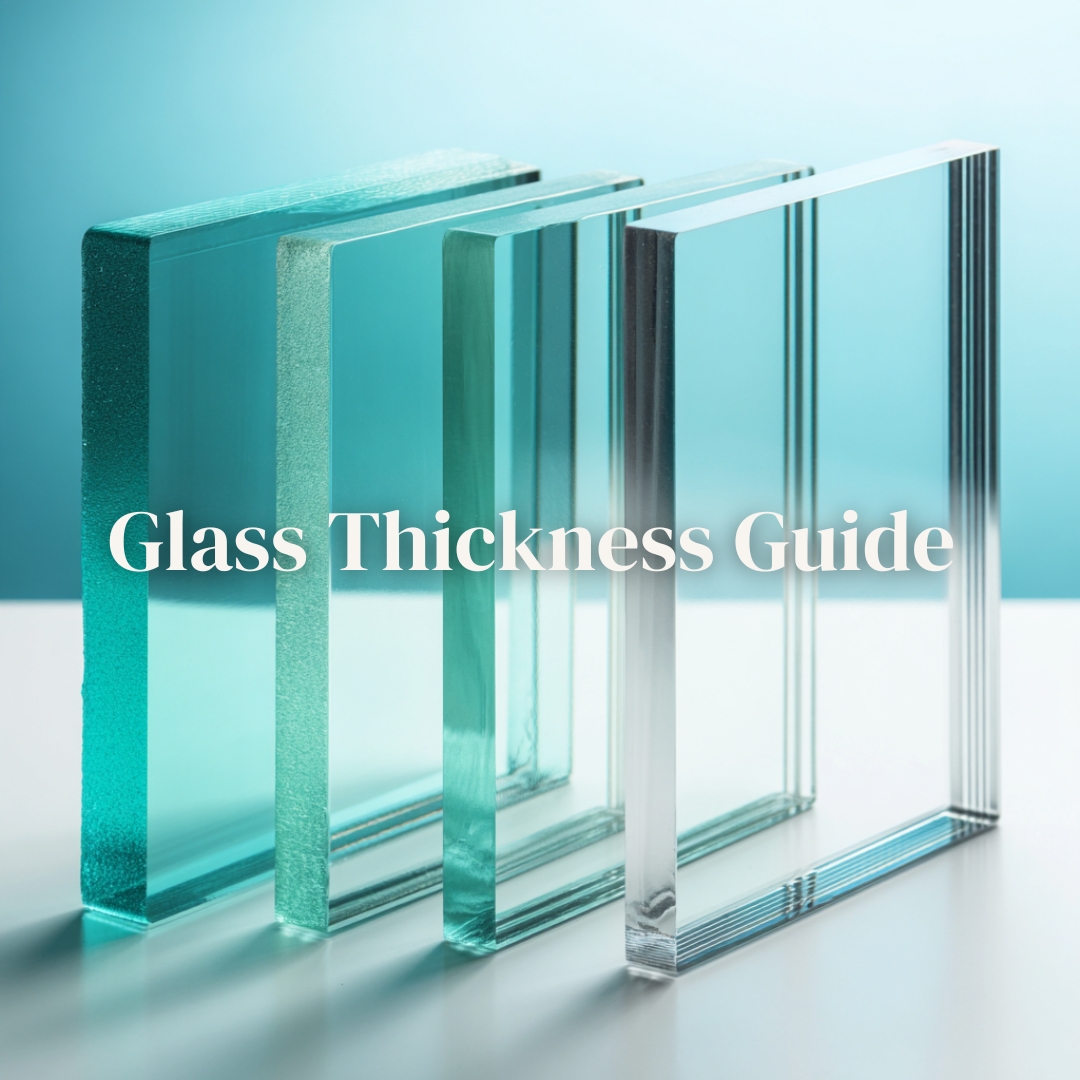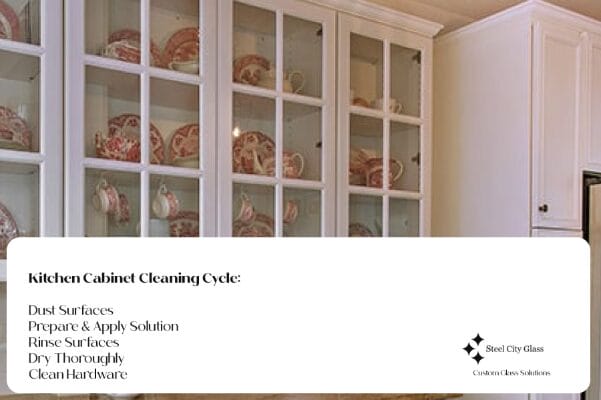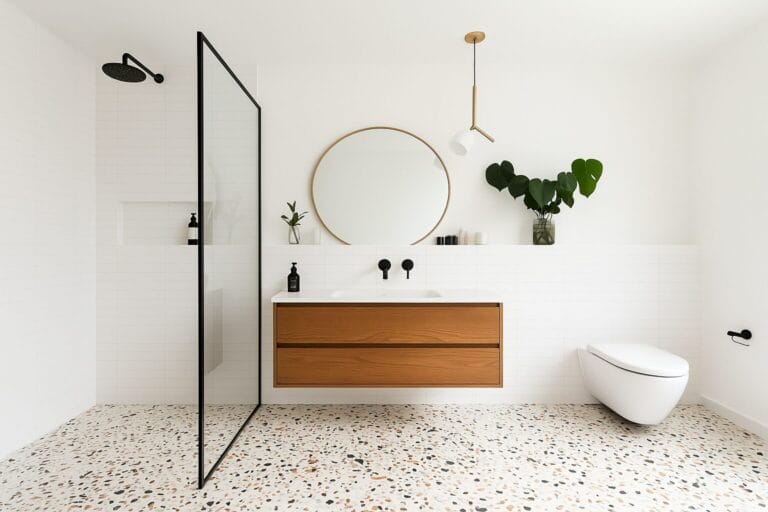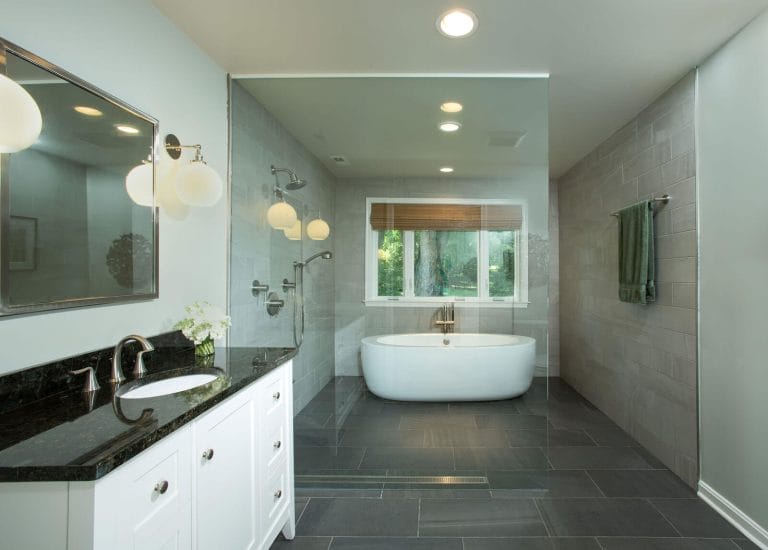What Glass Thickness Do You Need? Types & Safety Tips

Glass Thickness: Key Takeaways
- Glass thickness affects safety, strength, insulation, and overall performance
- Thinner glass works for light-use areas like cabinets and frames
- 1/4″ (6 mm) is a common and reliable choice for windows and doors
- 3/8″ to 1/2″ glass is ideal for frameless showers and large panels
- Laminated and insulated glass units are best for exterior use and noise control
- Always consider safety codes, room use, and frame style when choosing thickness
Over 70% of homeowners say they feel unsure about which glass type or thickness to choose during a remodel.
While it might seem like a small detail, glass thickness has a big impact on your home’s safety, comfort, and overall design.
To choose the right glass thickness for your home, today you’ll learn:
- What glass thickness means and why it matters in residential spaces
- The most common thickness options and where each one works best
- How thickness affects safety, insulation, and sound control
- What to consider when selecting the right thickness for your project
- Expert tips to make sure your glass is code-compliant and built to last
Why Glass Thickness Matters
Glass thickness affects more than just the way your windows or doors look.
Let’s break down why this matters:
- Safety: Thicker glass is less likely to break or shatter. It provides added protection in areas like bathrooms, stairwells, and entry doors
- Strength and support: The right thickness prevents flexing or bowing in larger glass panels, especially for frameless installations like shower doors and partitions
- Energy efficiency: Thicker or double-pane glass can reduce heat transfer. This helps keep your home warmer in winter and cooler in summer
- Noise control: In rooms where peace and quiet matter, thicker glass helps block out unwanted noise from outside or other parts of the house
- Clean, modern appearance: Proper thickness supports a sleeker look with better clarity and stability. It also complements high-end design features

Common Glass Thickness Options and Where They’re Used
Understanding the right glass thickness can make a big difference in both the performance and appearance of your home’s windows, doors, and enclosures.
Here’s a breakdown of the most common thicknesses and when to use each one.

1/8″ (3 mm) Glass
You’ll find this ultra-thin glass most often in light, decorative uses.
This type of glass is:
- Best for cabinet doors, picture frames, and interior décor
- Lightweight and cost-effective
- Not strong enough for doors, windows, or high-contact areas
- Offers minimal sound or thermal insulation
Pro tip: Use only in fully framed or protected environments. This ultra-thin glass is decorative rather than structural and can crack from small impacts or sudden temperature changes.

3/16″ (5 mm) Glass
A slight step up in durability, this thickness is used in light-duty areas where more strength is needed without adding bulk.
The 5mm glass is:
- Common for interior glass panels, decorative partitions, and light window inserts
- Thicker and stronger than 3 mm, but still considered light-duty
- Limited structural support for larger or frameless designs
- Not typically recommended for exterior or high-use installation
Smart choice: This slightly thicker glass is perfect for retrofitting older cabinets or interior panels. It offers more strength without requiring heavy-duty hardware or major adjustments.

1/4″ (6 mm) Glass
One of the most widely used thicknesses in residential spaces, this option balances strength, clarity, and weight.
This one is particularly popular because it’s:
- Ideal for most standard home windows, doors, and shower panels
- Strong enough to handle structural demands in framed applications
- Often used for glass partitions and indoor doors
- Offers a clean, modern look without excessive weight
Safety-first tip: Always use tempered glass for doors, showers, and other high-contact areas. It meets safety codes and helps prevent injury if broken.

3/8″ to 1/2″ (10–12 mm) Glass
This thickness range is used for frameless and more structural installations that need both strength and elegance.
If you’re looking for strength, consider this thickness because:
- It’s perfect for frameless shower enclosures, glass room dividers, and glass walls
- Provides enhanced stability and durability for larger panels
- Reduces flexing and helps block out noise
- Delivers a heavier, more luxurious feel
- Recommended for high-traffic or moisture-rich areas
Planning tip: Plan all hardware placement before tempering. Once tempered, holes can’t be drilled, so precise layout is essential for clean frameless installations.

Laminated and Insulated Glass Units (IGUs)
These specialty glass types are designed for safety, comfort, and energy efficiency, especially in exterior applications.
Laminated glass works best where:
- Large windows, entry doors, and areas need insulation or impact resistance
- Laminated glass includes a safety layer that holds the glass together if broken
- IGUs consist of dual panes separated by air or gas for better temperature and sound control
- You require for code compliance in exterior-facing glass installations
Pro tip: Choose laminated glass for soundproofing and safety as its built-in interlayer not only holds broken pieces in place but also blocks over 95% of UV rays and dampens noise.

Safety Considerations When Choosing Glass Thickness
The right glass thickness plays a key role in keeping your home safe.
Before making a choice, consider the following:
- Use tempered glass in bathrooms, doors, and near floors
- Choose laminated glass for added protection in large windows or entryways
- Go thicker in frameless installations or high-traffic areas
- Follow building codes that specify required thickness and safety standards
- Consider edge safety with polished or reinforced edges to prevent cracks
- Avoid thin glass where impact, pressure, or shifting is likely
Insulation and Noise Reduction Benefits
Glass thickness isn’t just about safety and structure. It also plays a key role in how well your home is insulated and how much outside noise gets in.
- Thicker glass reduces heat transfer: This helps maintain indoor temperatures, which can improve energy efficiency and lower heating and cooling costs
- Double-pane or insulated glass units (IGUs) offer added thermal protection: These are ideal for exterior windows and doors, especially in rooms that get a lot of sunlight or wind exposure
- Laminated and thicker glass helps block outside noise: It’s a smart choice for bedrooms, nurseries, home offices, or any space where quiet matters
- Soundproofing improves comfort: A thicker glass barrier can reduce the impact of traffic, construction, or neighborhood noise
The Right Glass Thickness Starts With Steel City Glass
At Steel City Glass, we help you make informed decisions that combine expert guidance with high-quality materials and clean, professional installations.
If you’re upgrading your windows, customizing a glass partition, or building a frameless shower, we ensure every panel is cut to fit and built to last.
What we offer:
- Custom solutions: Glass thickness recommendations tailored to your space and function
- On-site measurements: Accuracy that removes guesswork and ensures a perfect fit
- Clear guidance: We explain every option so you feel confident in your choice
- Durable materials: We use quality glass rated for performance, safety, and longevity
- End-to-end service: From planning to install, we handle every detail with care
No matter the project, there’s something about how we guide our clients that makes selecting the right thickness straightforward and stress-free.
Glass Thickness FAQs
How thick is glass in most residential windows?
Standard residential window glass is usually 1/8″ (3 mm) or 1/4″ (6 mm), depending on size and placement.
What thickness is best for a frameless shower door?
Most frameless shower doors use 3/8″ (10 mm) or 1/2″ (12 mm) tempered glass for safety and stability.
Can I use thin glass for room dividers or partitions?
Thin glass like 1/8″ or 3/16″ is not recommended. Use 1/4″ or thicker for durability and safety.
What’s the difference between tempered and laminated glass?
Tempered glass is heat-treated to shatter safely. Laminated glass holds together with an inner layer if broken, offering better impact protection.
Does thicker glass reduce outside noise?
Yes, thicker or laminated glass can help block out sound, especially in busy or high-traffic areas.
Is thicker always better?
Not always. The right thickness depends on how the glass will be used. Oversizing may add cost without adding value.


